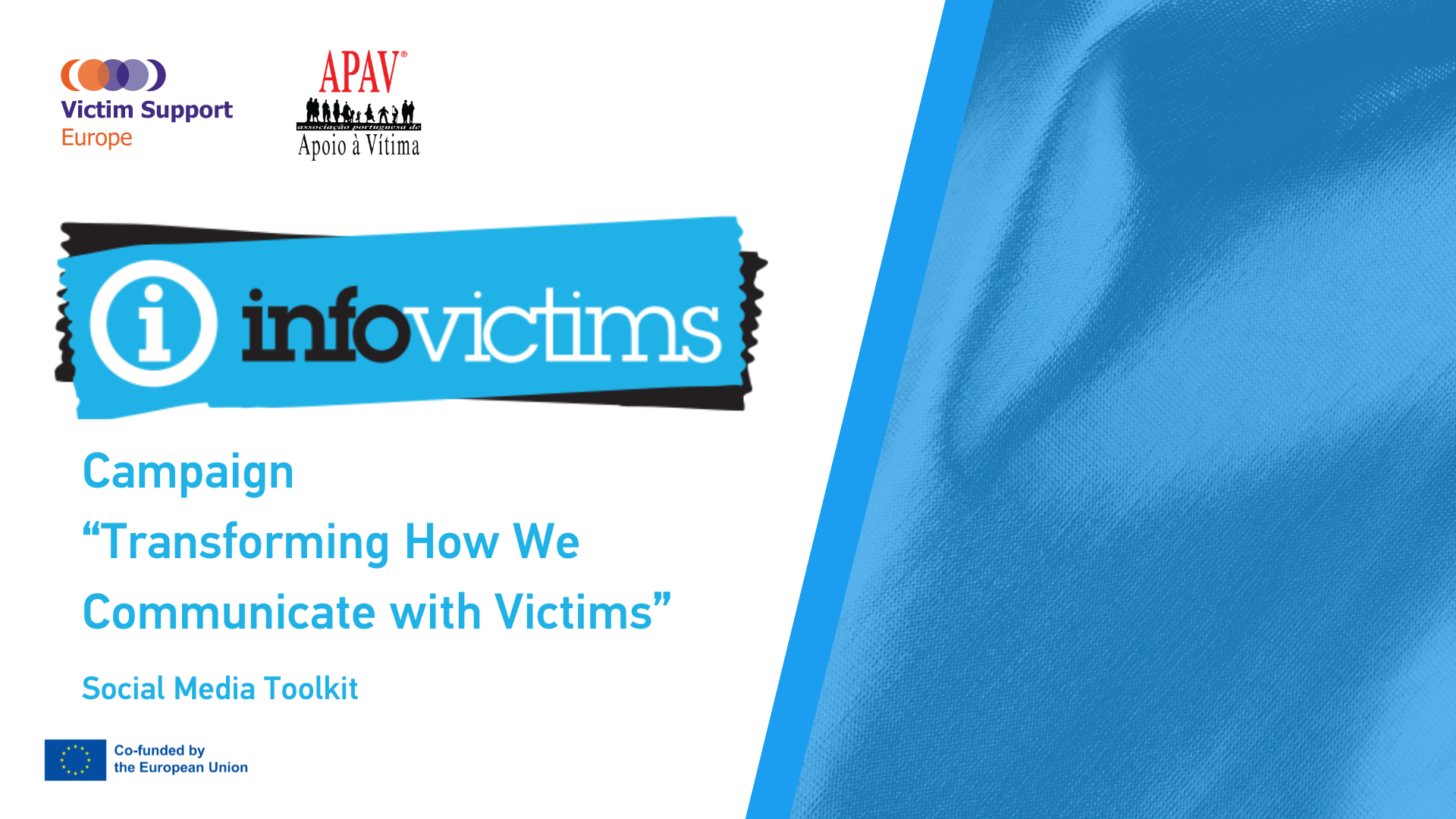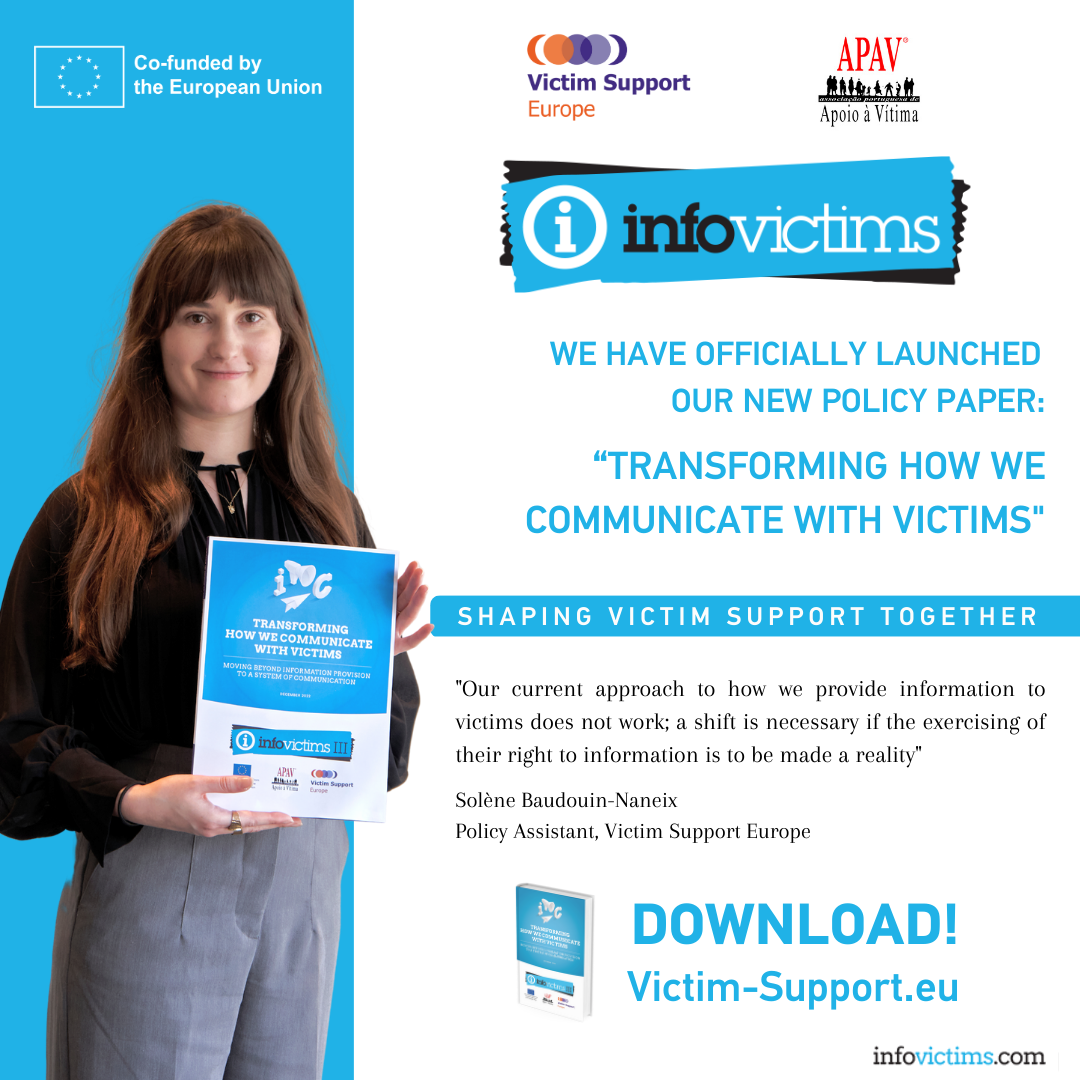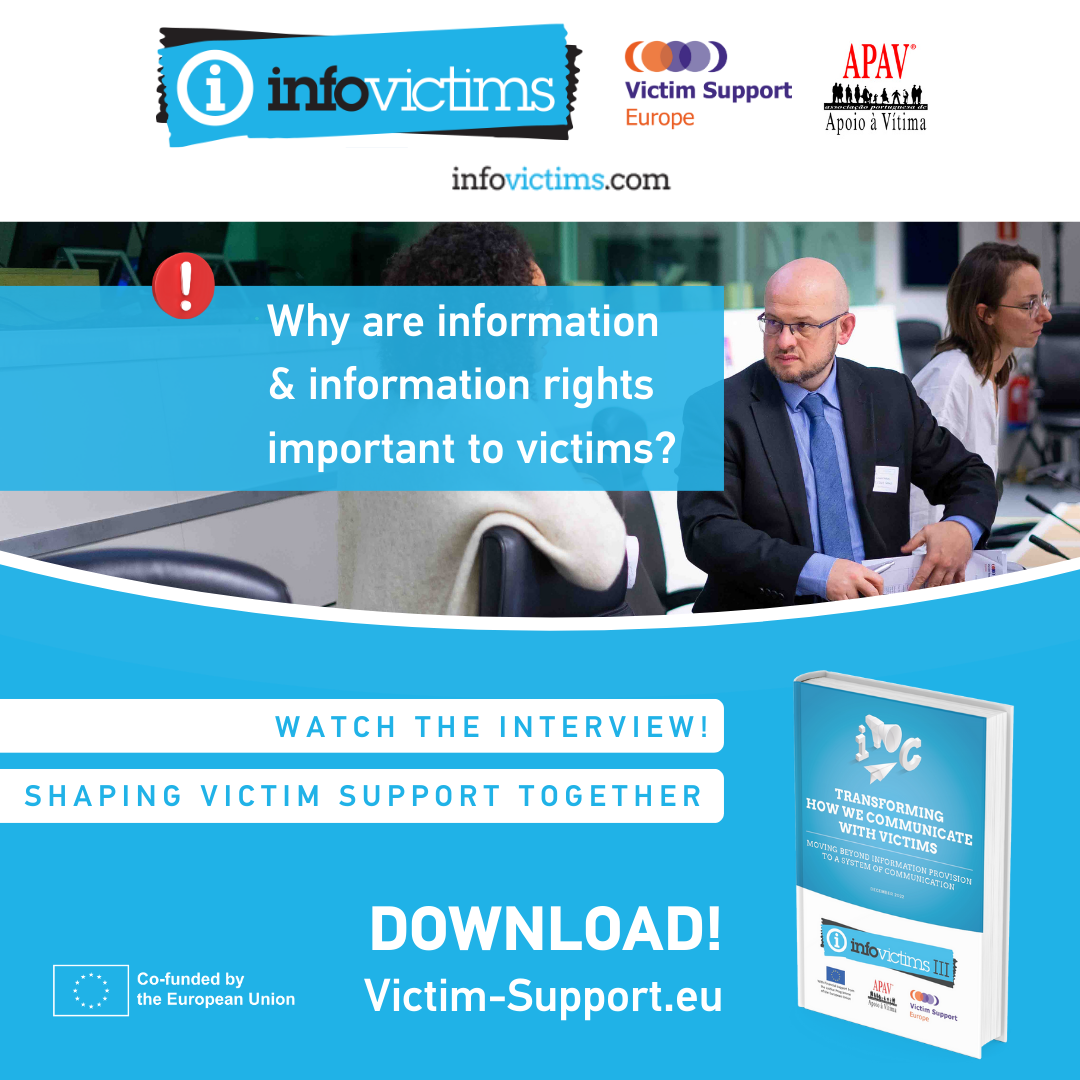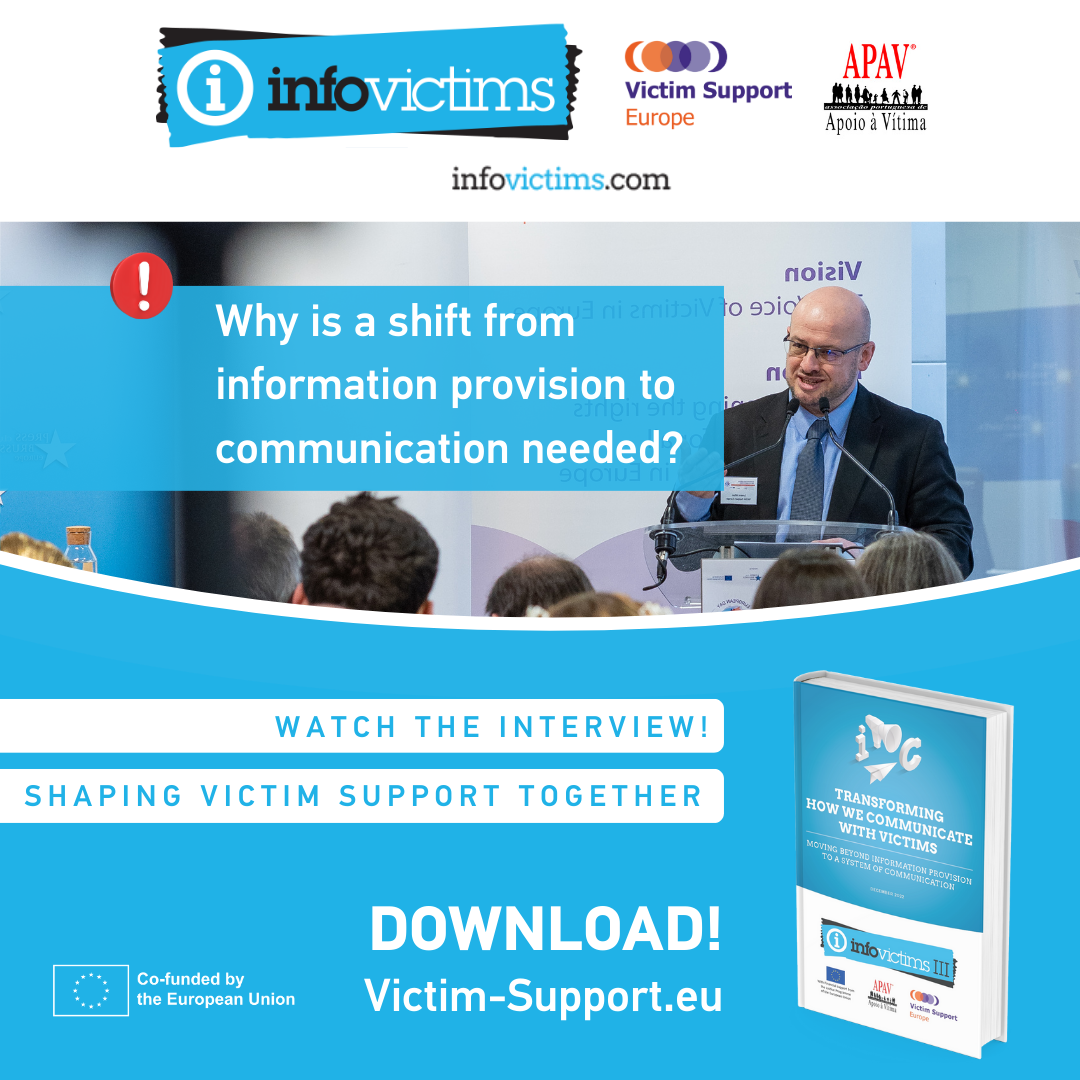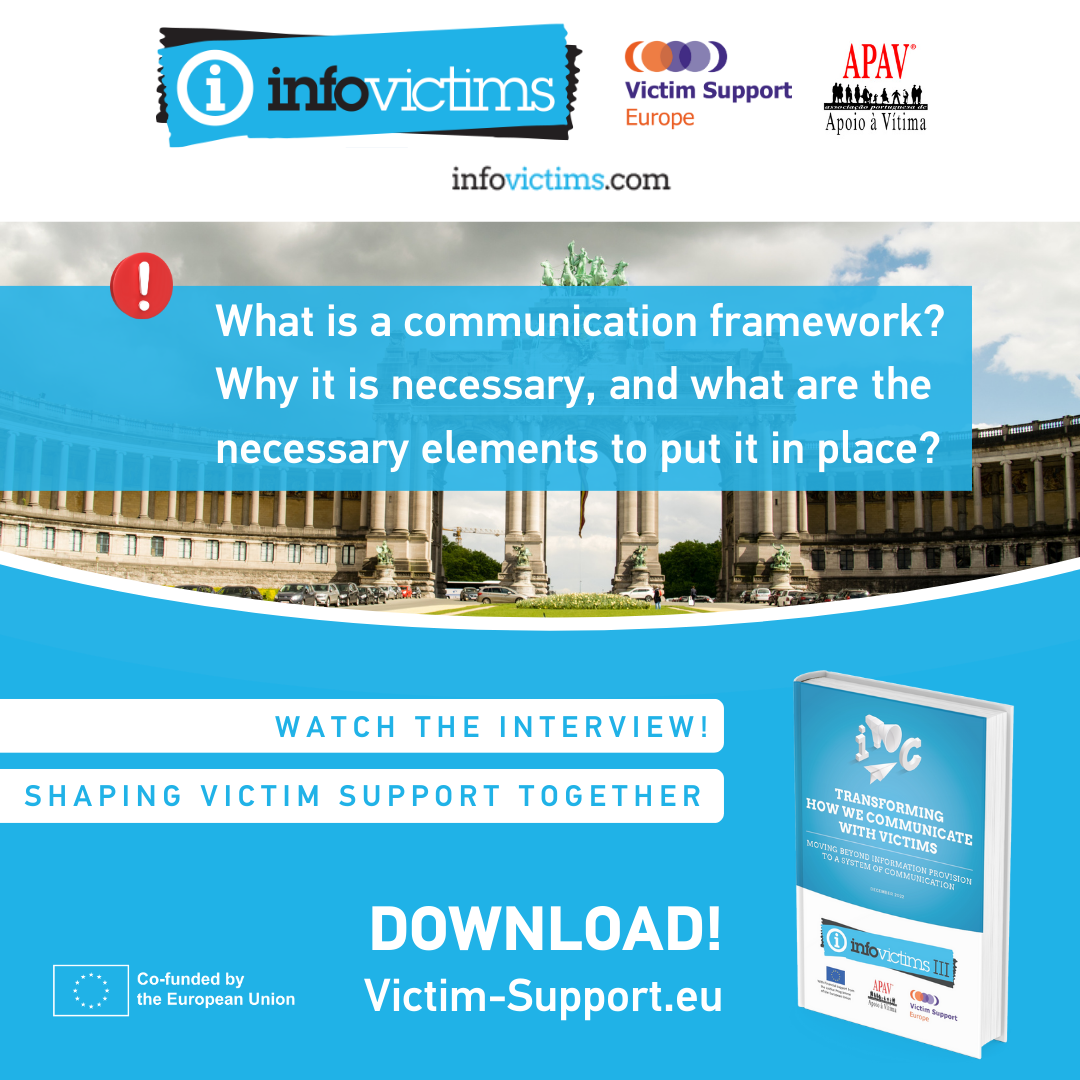Since the last 40 years, all States have recognised the importance of the right to information. Part of the reason for reviewing how these rights operate/are implemented now, are because the problems identified suggest that the way of thinking of information rights is not efficient and that they won’t be/can’t be implemented properly under the current approach.
Information is at the heart of effective support for victims of crime. It allows victims access to services and justice and helps prevent secondary victimisation. However, statements from victims show that many still struggle to access and receive information that is both clear to understand and adapted to their needs, whether they are looking for assistance immediately after the crime or during criminal proceedings.
This policy paper aims to examine these challenges, look at effective solutions and proposes a shift in how we think and implement information rights.
Its recommendations include:
- the provision of guidelines, for professionals and others, on communicating with those who have fallen victim to crime;
- the development of practical solutions, e.g. online platforms which allow victims access information about their case;
- and the buildout of a systemic approach to information provision, through use of a communication framework.
Recognising that information provision has to be part of a wider system of communication that focuses on how and if information is understood, and ensures information can be acted upon, a communications framework formalises and organises strategic cooperation between key professionals, to ensure communications with victims are harmonised and consistent.
Such framework should structure what information is shared and how but also the mechanisms, actors and relationships responsible for this information sharing, in particular:
- Establish institutional structures for planning and implementation;
- Establish a communications strategy that sets out a vision, objectives and an implementation plan;
- Determine the current situation of communications, identify barriers and gaps as well as carry out a needs analysis;
- Define what information needs to be provided to victims, when, how and by who;
- Establish standards for information, in terms of: availability, accessibility, timeliness and repetition over time, accuracy, adaptation to individual needs, actionability;
- Establish mechanisms and procedures for implementing the effective communication of information, e.g. online platforms for victims to access information about their case, protocols for regional/local cooperation and coordination.


